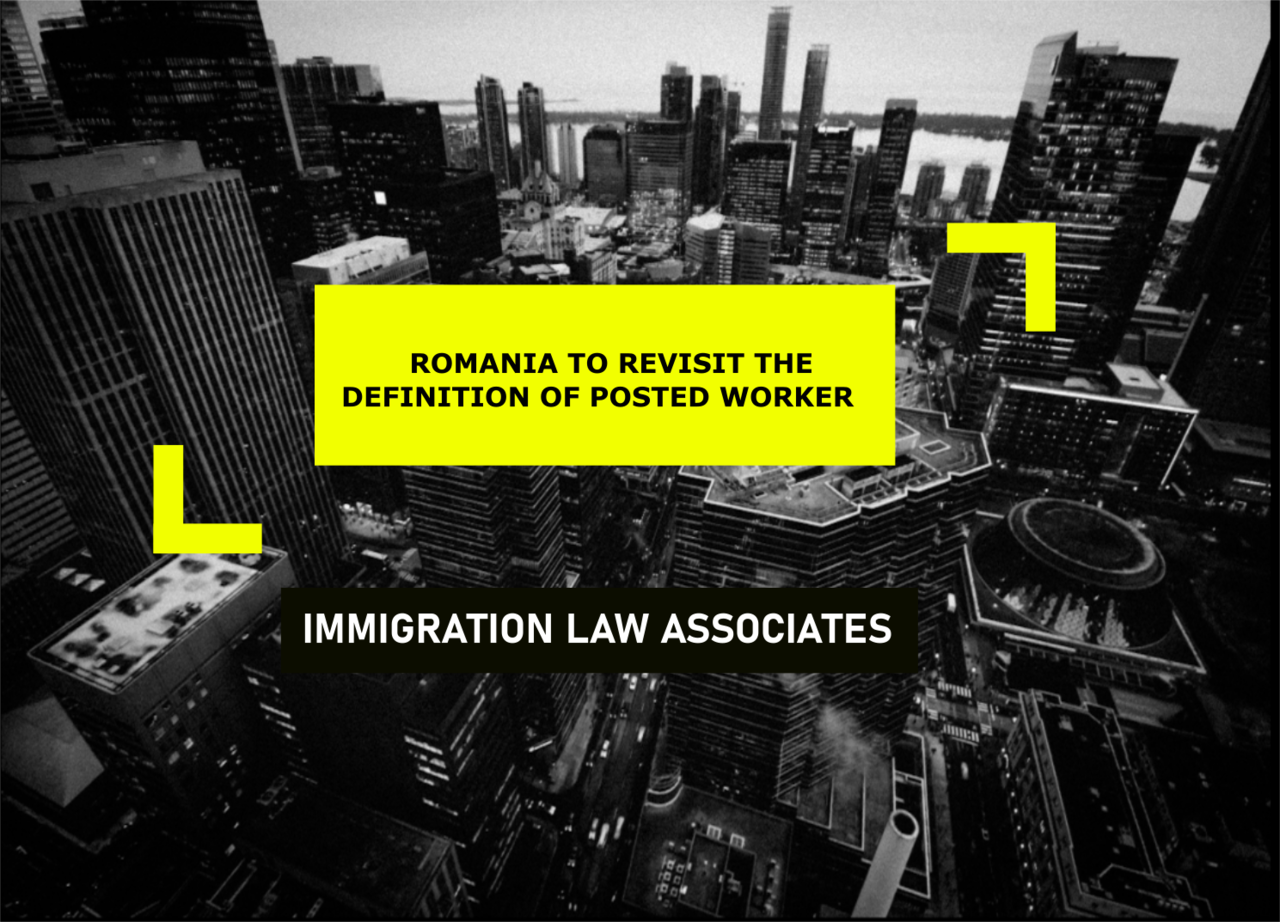
The Law 172 of 13 August 2020, amending and supplementing the Law 16 of 17 March 2017, amends and supplements the EU law as well.
Surprisingly, the law lays down two different definitions: inbound and outbound posted worker.
In accordance with Article 2.1 Directive 96/71/EC (Posting of Workers Directive), pursuant to Article 2.1 b) Law n° 16/2017, (inbound) ‘posted worker’ means a worker who normally works in the territory of a Member State other than Romania, and for a limited period, carries out his work in the territory of Romania.
In accordance with Article 2.1 c) Law n° 16/2017 as amended by the Law n° 172/2020, (outbound) posted worker means “the employee of an employer established in the territory of Romania, who, for a limited period of time, but not more than 24 months, according to art. 12 of Regulation (EC) no. 883/2004 of April 29, 2004 on the coordination of social security systems, carries out work in the territory of a Member State, other than the one where the employer provided in art. 3 lit. b) is established, or in the territory of the Swiss Confederation, during the execution of the contract concluded with the employer from the other Member State, as provided in art. 5 para. (2), in the framework of a provision of transnational services”.
Interpreting Art 56TFEU, the ECJ case-law prohibits measures which “prohibit or otherwise impede the activities of a provider of services”. Such measures hinder market access, unless they are “justified by imperative reasons relating to the public interest” (these measures must be objectively necessary and satisfy the principle of proportionality).
Before assessing whether the protection of local workers (will be probably invoked by the Romanian Government) can justify such a measure, it must be observed that:
1 The social security coordination regulations and the Posting of Workers Directive are hermetic legal instruments.
2 Provided that a definition of posted worker transposing Directive 96/71/EC, and contains reference to Regulation 883/2004 could be accepted, still, the 24 months period addressed should be an anticipated period. Regulations are of general application, of binding character, and are directly applicable in each Member State.
3 The definition of outbound posted worker, excludes from the scope of the Posting of Workers Directive, situations that fall under Art 13 Regulation 883/2004 (temporary multi-state activity on behalf of a single employer stablished in the Romanian territory).
4 There is a single definition of posted worker, that laid down by Article 2.1 Directive 96/71/EC. The latter provision does not contain reference to the Member States national legislation, and consequently, must be given an autonomous and uniform interpretation throughout the EU.
5 The existence of a contract of provision of services “concluded with the employer from the other Member State”, does not constitute a “condition” under Article 2.1 Directive 96/71/EC.
The takeaway
Article 2.1 c) Law n° 16/2017 as amended, might be merely a provocation to respond the accusations of “social dumping” made by West European countries.
However, before the said article will be amended or abrogated, undertakings posting workers from the territory of Romania, are submitted to “specific rules”.





Please sign in or register for FREE
Sign in OR sign up to become a registered The Forum for Expatriate Management website user
Subscribe here